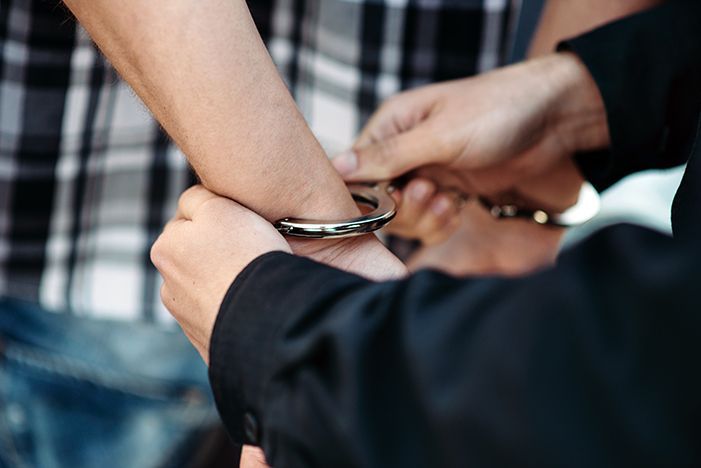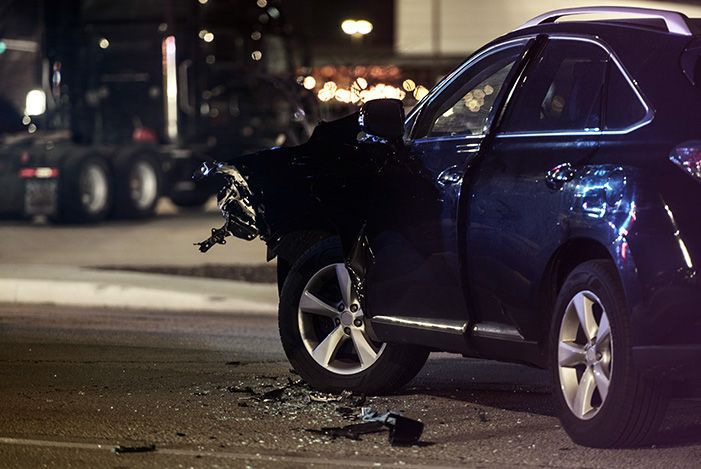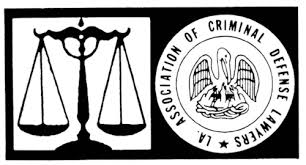Common Defenses Argued In Criminal Cases
What are the most common defenses argued in criminal cases?

Common Criminal Defenses
Today, we're discussing criminal defense. When a defendant goes on trial for allegedly committing a crime, the prosecution is the one that must establish that the defendant is guilty of the crime beyond a reasonable doubt. At the same time, the criminal defendant has the right to present a defense and may do so through a few different means. The defendant may be able to portray mistakes or errors in the prosecutor’s case, argue that another individual committed the crime, or argue that he or she did commit the crime but had a legal and reasonable defense for doing so. There are numerous criminal defenses available that may allow a defendant to avoid punishment for his or her actions.
(1) Defendant Didn't Understand Significance Of Criminal Actions
(1) One selection of defenses that are available to criminal defendants argues that the defendant cannot be found guilty for the crime because he or she did not understand what he or she was doing or that his or her actions were wrong. At its most severe, this includes the defense of insanity. The defense of insanity requires the defendant to prove, depending on the exact state the case is tried, that either he or she had a mental disorder that rendered him or her incapable of understanding right from wrong, or that it prevented him or her from controlling his or her actions and resisting violent impulses.
It's worthy of noting, in some states, the defense of insanity will allow a defendant to avoid prison but will require that the defendant be held in a psychiatric facility for on-going treatment.
(2) Similarly, the defense of intoxication also relies on the theory that the defendant cannot meet all of the elements of the crime because he or she did not understand what he or she was doing. If a defendant is involuntarily intoxicated, this can be a defense to both general and specific intent crimes under the theory that the intoxication prevents the defendant from understanding right and wrong.
Voluntary intoxication would also be a defense, but only to specific intent crimes where the defendant would argue that his or her intoxication prevented him or her from forming the intent necessary for the crime committed.
(3) Also, a criminal defendant may be able to argue mistake of law/mistake of fact. Under this defense, this claims that the defendant made a fundamental mistake that negates an element of the crime. For example, a defendant charged with larceny may argue that he mistakenly believed that the victim had given him the property. Similarly, mistake of law applies when a criminal defendant believed his or her actions were lawful. This defense only applies to very limited circumstances.
(2) The Defendant Was Justified in His or Her Actions
Another category of defenses applies when the defendant committed the crime but argues that he or she was justified in doing so. The most commonly recognized of these defenses are self-defense and defense of others. A defendant may argue, for instance, that he did shoot an intruder but did so in self-defense because the intruder was threatening him with a gun. Similarly, under a defense of duress, the criminal defendant argues that he or she only committed the crime because he or she was forced to do so by someone else. For example, a criminal defendant may argue that a co-defendant told him that if he didn’t commit a burglary, the co-defendant would kill him. Finally, under a necessity defense, the criminal defendant may argue that he or she committed the crime in order to prevent a more significant harm. For instance, the defendant may contend that it was necessary for him to steal a car in order to chase down another individual who was threatening to use an explosive device.
(3) No Crime Has Occurred
Finally, a smaller set of defenses may be used to argue that although it appears there was a crime, the defendant did not actually commit a criminal act. First, the defendant may argue that no crime occurred because of the defense of consent.
Sexual intercourse is one example of this defense being used, let's say the defendant's is arguing that the two had sexual intercourse, but it was not rape because there was consent. We can use another example here, you may argue that there was no assault because the victim consented to the harm.
Additionally, a criminal defendant can assert the defense of abandonment/withdrawal if he or she initially intended to commit or participate in a crime but later had a change of heart and withdrew from participation. Here's another, the defendant may argue entrapment. Entrapment occurs when the government induces an individual to commit the crime and then attempts to punish that person for it. In such a case, the defendant may argue that no crime would have occurred if it wasn't for the government’s inducement, and he or she should therefore not be held responsible for the criminal charge.
Talking To A Criminal Defense Attorney
Every criminal case is different, although we try to give you the best resources possible, it's always best to contact a criminal attorney and consult with them about your case. If you're in need of a New Orleans criminal defense attorney, you can reach us at 504-465-0101. We'll be glad to answer any questions you may have, so feel free to reach out.















